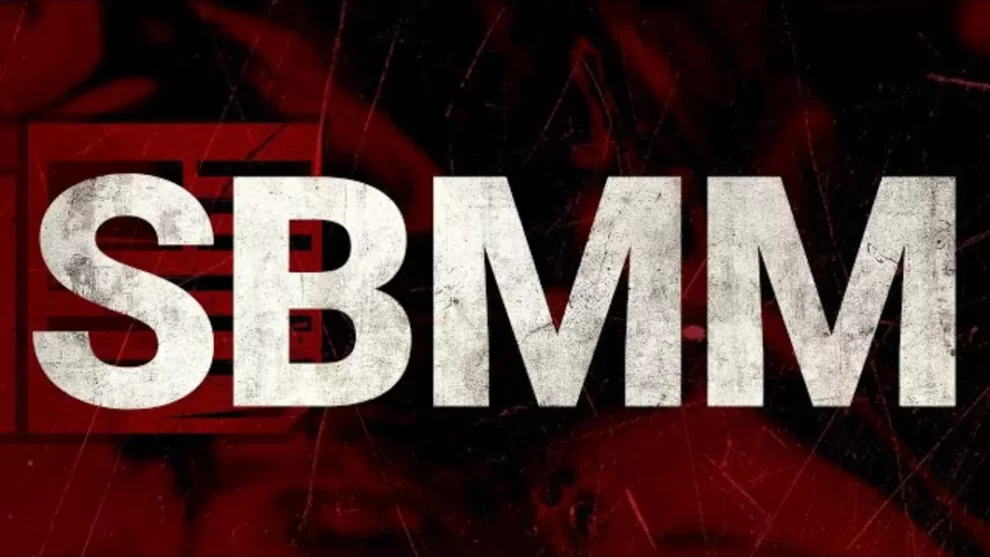Call of Duty has long been a staple of competitive gaming, renowned for its fast-paced action and strategic depth. At the heart of this experience lies the matchmaking system, a complex algorithm designed to pair players of similar skill levels for fair and enjoyable matches. But what exactly is SBMM, and how does it work in Call of Duty? More importantly, how does it impact your gaming experience? Let’s delve into the intricacies of SBMM and demystify the matchmaking process.
What Is SBMM?
SBMM stands for Skill-Based Matchmaking. As the name suggests, this system uses player performance data to ensure that matches are balanced according to skill level. The goal is simple: create competitive environments where players of comparable abilities face off against one another. This approach helps maintain fairness, reduce frustration, and enhance the overall gaming experience.
In Call of Duty, SBMM plays a pivotal role in shaping the matchmaking process. When you join a match, the system evaluates your recent performance, factoring in variables such as win/loss records, kill/death ratios, and other metrics. Based on this analysis, it assigns you a skill rating, often referred to as MMR (Matchmaking Rating). Your MMR determines the difficulty of opponents you’ll face, ensuring that you’re matched with players who are similarly skilled.
The Science Behind SBMM
Understanding SBMM requires a grasp of how it processes data and makes decisions. At its core, the system relies on statistical models and machine learning algorithms to analyze player behavior. Here’s a breakdown of the key components involved:
1. Skill Rating (MMR)
Your MMR serves as the cornerstone of SBMM. It’s a numerical representation of your skill level, calculated based on your performance in previous matches. The higher your MMR, the stronger your opponents will be. Conversely, lower MMRs result in easier matches. This dynamic ensures that players are consistently challenged without becoming overwhelmed.
The calculation of MMR involves several factors, including:
- Win/Loss Record: A player’s history of victories and defeats directly influences their MMR.
- Kill/Death Ratio (KDR): While not the sole determinant, KDR is an important metric used to assess performance.
- Playstyle and Strategy: The system considers how you approach matches—whether you’re an aggressive front-liner or a cautious sniper.
2. Dynamic Adjustment
SBMM doesn’t operate in isolation; it constantly adjusts your MMR based on new data. After each match, your rating is recalculated to reflect your performance. Wins typically boost your MMR, while losses decrease it. This dynamic adjustment ensures that your skill rating remains accurate and reflective of your current abilities.

3. Queue Management
Once your MMR is determined, the system enters the queue management phase. During this stage, the algorithm searches for players with similar MMRs to form balanced teams. This process involves several layers of optimization, including:
- Team Composition: Ensuring that teams are evenly matched in terms of skill and composition.
- Latency Matching: Accounting for network delays to minimize unfair advantages due to ping differences.
- Player Preferences: Considering factors like preferred game modes and maps to enhance satisfaction.
How SBMM Impacts Your Experience
SBMM’s influence extends beyond matchmaking mechanics. It shapes the entire competitive experience, affecting everything from match outcomes to player morale. Here’s how it impacts different aspects of the game:
1. Fairness and Balance
One of the primary benefits of SBMM is its ability to create fair and balanced matches. By pairing players of similar skill levels, it reduces the likelihood of lopsided encounters where one team dominates the other. This balance fosters a more enjoyable experience for everyone involved, as neither side feels unfairly disadvantaged.
Fairness is particularly important in ranked modes, where players are vying for positions on leaderboards. SBMM ensures that ladder climbers face opponents who are equally motivated and skilled, making progression feel earned rather than arbitrary.
2. Player Morale
Matchmaking can significantly impact player morale. When you consistently face opponents who are either far too strong or far too weak, it can lead to frustration and disengagement. SBMM mitigates these issues by placing you in matches where you’re more likely to succeed, boosting confidence and encouraging continued participation.
Moreover, facing players of similar skill levels creates a sense of accomplishment. Whether you win or lose, knowing that your opponent was a worthy adversary enhances the satisfaction derived from each match.
3. Learning Opportunities
For newer players, SBMM serves as a valuable learning tool. By matching you with players of similar skill levels, it provides opportunities to practice and improve without being overwhelmed by advanced strategies. Over time, as your MMR increases, you’ll naturally progress to more challenging matches, allowing you to refine your skills further.
Common Misconceptions About SBMM
Despite its effectiveness, SBMM is often misunderstood. Several misconceptions persist, leading to confusion and frustration among players. Let’s address some of the most common myths:
1. “I’m Always Matched with Weak Opponents”
Many players assume that SBMM is flawed because they frequently face weaker opponents. However, this perception often stems from short-term fluctuations in MMR. If you’ve recently had a string of wins, your MMR may temporarily rise, resulting in easier matches. Conversely, prolonged losses can cause your MMR to drop, leading to tougher opponents. These adjustments are part of the system’s dynamic nature and help maintain balance over time.
2. “SBMM Rewards Losers”
Another prevalent myth is that SBMM disproportionately favors losing players. While it’s true that losing players may occasionally face weaker opponents, this isn’t a flaw—it’s a feature. By allowing players to recover from setbacks, SBMM prevents burnout and keeps individuals engaged. This approach ensures that everyone gets a chance to improve, regardless of temporary setbacks.
3. “SBMM Is Irrelevant in Casual Play”
Some players dismiss SBMM as irrelevant in casual modes, arguing that skill levels don’t matter in informal settings. While it’s true that casual matches prioritize fun over competition, SBMM still plays a role in maintaining balance. Even in relaxed environments, players tend to gravitate toward others with similar skill levels, creating more enjoyable experiences for everyone involved.
Tips for Maximizing Your SBMM Experience
If you want to make the most of SBMM, here are some practical tips to consider:
1. Stay Consistent
Consistency is key to maintaining an accurate MMR. Avoid skipping sessions or abandoning matches mid-way, as this can skew your ratings. Regular participation helps SBMM recognize your true skill level, ensuring that you’re matched appropriately.
2. Adapt Your Playstyle
While SBMM accounts for various factors, your playstyle plays a significant role in your MMR. Experiment with different strategies and adapt to changing situations. By diversifying your approach, you’ll improve your chances of success across various scenarios.
3. Manage Expectations
Remember that SBMM is designed to balance matches, not guarantee victory. Accept that losses are part of the learning process and focus on improving rather than obsessing over individual results. Over time, consistent effort will yield tangible improvements in your MMR.
SBMM is a sophisticated system that plays a crucial role in Call of Duty’s matchmaking process. By leveraging skill ratings and dynamic adjustments, it ensures fair and balanced matches, enhancing the overall gaming experience. While misconceptions abound, understanding the science behind SBMM empowers players to engage more effectively with the system.
Whether you’re a competitive pro or a casual enthusiast, SBMM tailors the game to your abilities, fostering an environment where skill and strategy take center stage. So, the next time you dive into a match, remember that SBMM is working behind the scenes to deliver a fair and enjoyable experience. Embrace its capabilities, adapt to its nuances, and enjoy the thrilling world of Call of Duty. After all, at its heart, the game is about competition—and SBMM helps ensure that every match is worth the hype.
















Add Comment